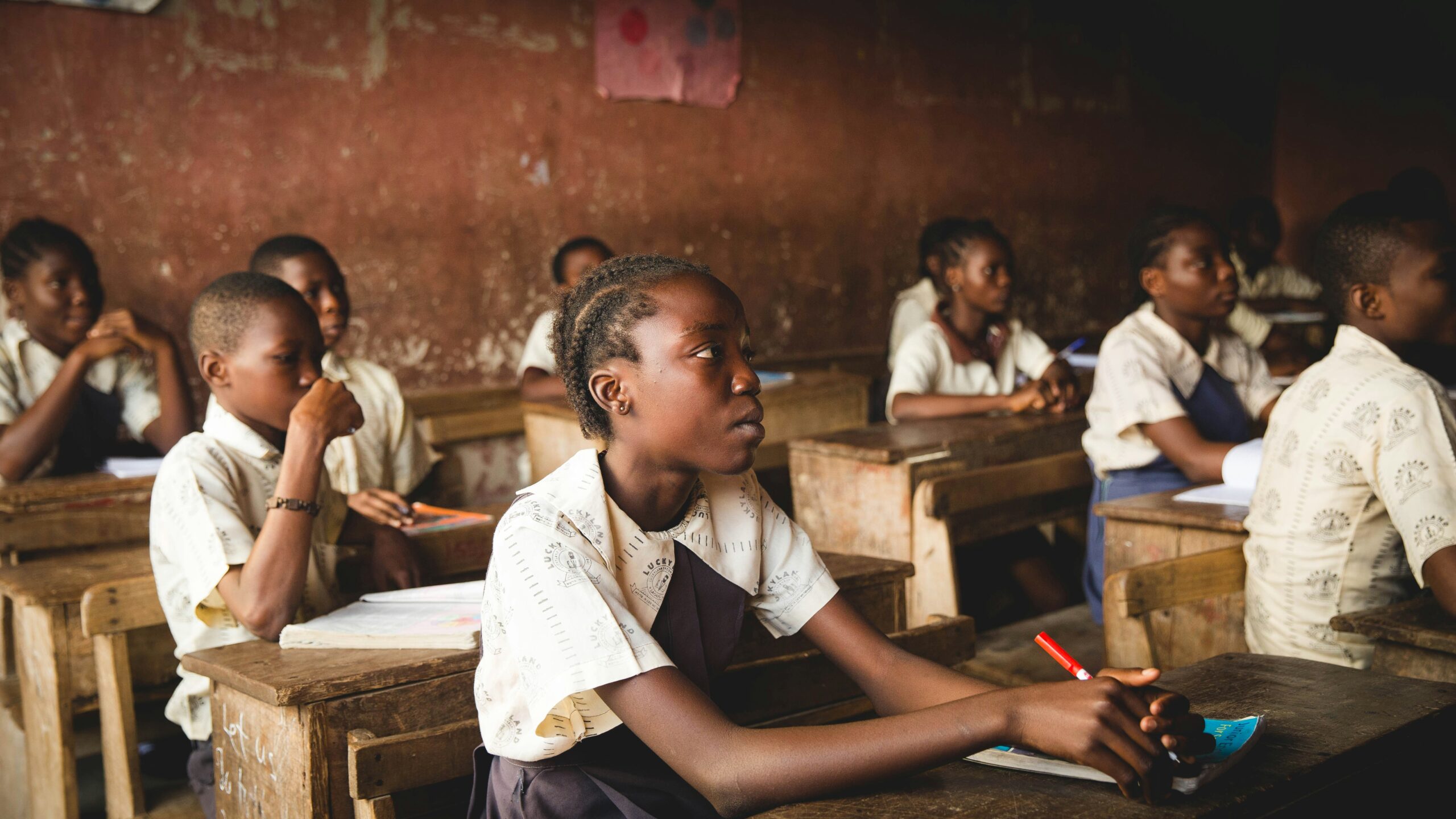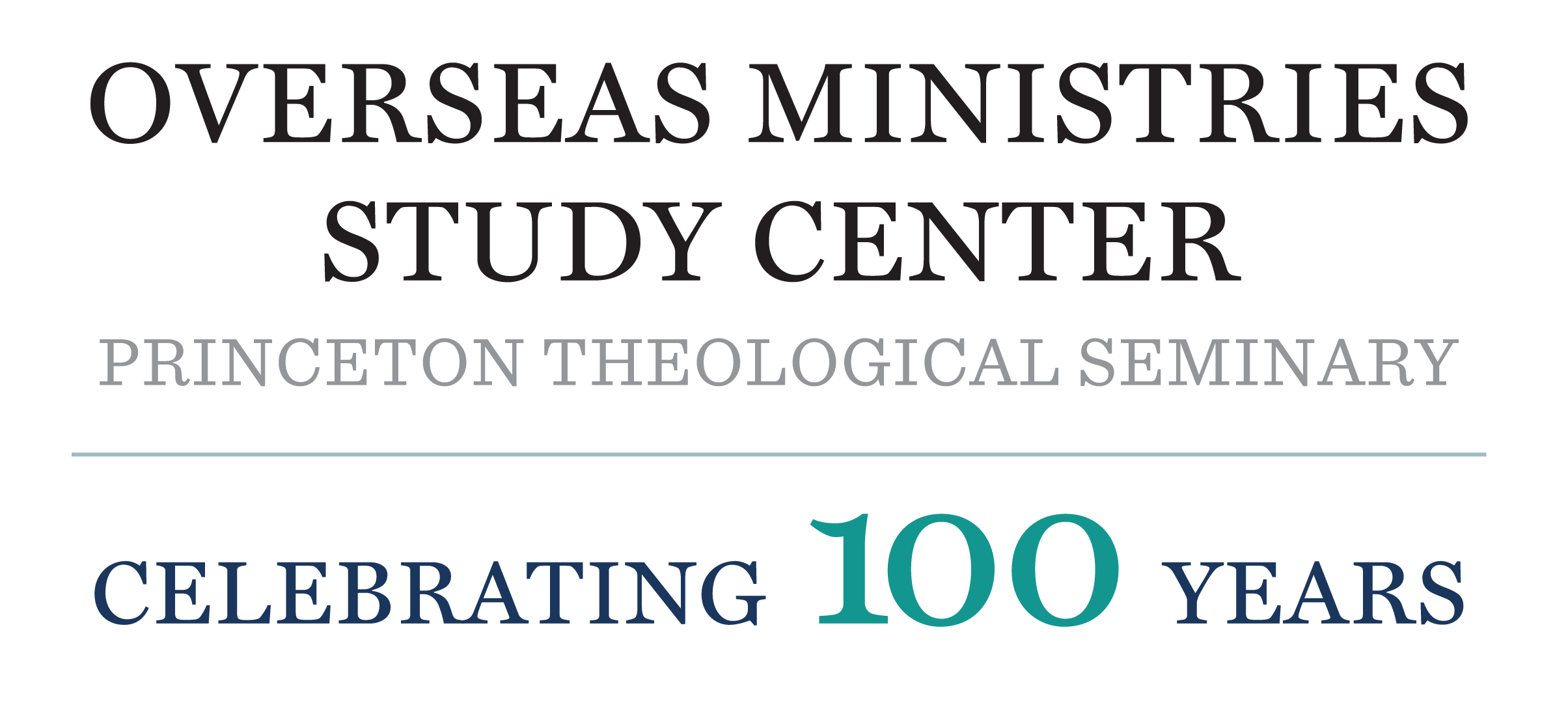By Jones Otisi Kalu
 Rev. Dr Jones Otisi Kalu is a minister of the Presbyterian Church of Nigeria (PCN), ordained in 2009. Jones has served as a minister in several parishes and as a seminary tutor and administrator. Currently, Jones is the Minister in-charge of PCN, Ukwuakwu Parish, Ututu, Abia State. Rev. Kalu holds a PhD in New Testament (University of Nigeria). He hopes to find an intersection between Pauline Theology and issues of economic liberation towards developing relevant contextual Christian praxis for poverty alleviation in Africa. In 2023-2024 was a OMSC Resident Scholar.
Rev. Dr Jones Otisi Kalu is a minister of the Presbyterian Church of Nigeria (PCN), ordained in 2009. Jones has served as a minister in several parishes and as a seminary tutor and administrator. Currently, Jones is the Minister in-charge of PCN, Ukwuakwu Parish, Ututu, Abia State. Rev. Kalu holds a PhD in New Testament (University of Nigeria). He hopes to find an intersection between Pauline Theology and issues of economic liberation towards developing relevant contextual Christian praxis for poverty alleviation in Africa. In 2023-2024 was a OMSC Resident Scholar.
The mission of the Church perennially seeks to weave threads of compassion, justice, and hope into the fabric of human existence. At this intersection, the Church’s mission emerges as a transformative force in the world and endeavors to mend the frayed edges of societal disparities and human suffering. This mission of justice can only be achieved if the Church clearly understands its being, calling, and mission in the light of the Missio Dei. The Missio Dei is described as “God the Father sending God the Son and God the Father and Son sending God the Spirit to accomplish the divine acts of salvation in the world.”[i] In a more all-encompassing form, it is about “God’s activity, which embraces both the church and the world,”[ii] such that God sends the Church to participate in “the movement of God’s love toward.”[iii]
The Church’s appropriate understanding of and intentional alignment with the missio Dei is not just a theological concept, but a transformative power. Especially when we think that the “Missio Dei offers an umbrella under which all the different biblical motives for mission and the corresponding different directions in our churches have their rightful place but are at the same time relativized.”[iv] Consequently, both the theoretical and practical dimensions of mission activities find their proper articulation and execution within the circumference of the implications of the Missio Dei. Accordingly, Missio Dei uncovers a theological treasure that transcends human endeavors, inviting the Church into a transformative journey of God’s love movement towards the whole of creation. This journey is not just a duty, but a privilege, in tune with the triune God’s dynamic and communal nature and eternal purpose.
But in what sense does the Missio Dei offer the Church in Africa a missional paradigm? In accordance with this article’s theme, what are the implications of the Missio Dei for the Christian mission and its relevance to the Church’s involvement in poverty alleviation within the contemporary African context? There are two broad paradigms in which Missio Dei serves as a compass for the Church’s missional mandate to alleviate poverty.

The first is a theological orientation based on God’s nature as a sending or a missional God who has sent the Church to participate in the movement of divine love towards all creation. It is about “God the Father sending God the Son, God the Son sending God the Spirit, and God the Father and God the Son sending the Church into the world.”[v] This theological orientation receives further articulation from the biblical imperative to address societal inequalities and promote justice. Prophetic voices in the Old Testament, such as Isaiah’s and Amos’, cry out about God’s concern for the oppressed and marginalized. The New Testament echoes this sentiment, with Jesus proclaiming a message of liberation for the poor (Luke 4:18-19) and instructing his followers to care for those in need (Matthew 25:31-46). This theological bearing offers the Church a missional imperative that extends beyond the salvation of souls or proselytization to encompass a holistic transformation that addresses the tangible needs of humanity. As expressed by Leslie Newbigin, the Church’s mission is not merely to bring individuals to Christ but to embody the reign of God in all spheres of life.[vi] In a significant sense, poverty alleviation and the general economic well-being of society is a concrete expression of this missional mandate.
The other theological orientation is an incarnational witness and identification model for the Church. The Incarnation, a pivotal aspect of Missio Dei, articulates the divine decision and the practical manifestation of the eternal God becoming human, in Jesus Christ, and dwelling among humanity. This is the highest demonstration of the missio Dei, the emblematic expression of God’s love. As Moltmann asserts, “God becomes human so that humanity may become divine.”[vii] Thus, this incarnational model becomes a paradigm for the Church’s witness. This divine Incarnation compels the Church to identify and share with those at the margins of society, actively participating in their struggles for justice, equity, and dignity. When the Church engages with impoverished communities, it mirrors the incarnational nature of God’s mission.
This transformative force in the Church’s mission is considered urgent in Africa today. The current socioeconomic landscape of the continent includes overwhelming stark inequalities, economic hardships, and social injustices, with roots entwined in historical legacies, systemic issues, and other contemporary challenges. The result is pervasive poverty across the continent. According to the World Bank, on October 17, 2023, over half of the 700 million people in extreme poverty worldwide were in Sub-Saharan Africa.[viii] This explains why Collium Banda would write that “poverty is so endemic (in Africa) that Africa and poverty are sometimes regarded as synonyms.”[ix] The situation calls for a comprehensive response that beckons the Church’s mission to take on impactful engagement. Within this intricate collage of need and resilience, the Church’s witness, guided by the Missio Dei, is mandated to assume a crucial role as a beacon of hope and change.
The relevance and implications of the Missio Dei to the witness of the Church in poverty alleviation in Africa are profound. Rooted in theological foundations, this missional imperative compels the Church to actively participate in addressing the various challenges that are causing and perpetuating poverty in Africa. Effective means model the integration of Missio Dei into practical initiatives, emphasizing the inseparable link between faith and action in the pursuit of justice and compassion. As the Church continues to navigate the complexities of socioeconomic difficulties in Africa, the enduring call of the Missio Dei remains a guiding force, shaping a transformative witness that extends beyond soul-winning and doctrinal proclamations to embodying the very essence of God’s redemptive mission in practical terms.
[i] Jonas S. Thinane, “Missio hominum in missio Dei: Biblical embodiment of missio hominum,” Verbum et Ecclesia 44.1 (2023): 2. https://doi. org/10.4102/ve.v44i1.2583
[ii] David J. Bosch, Transforming Mission: Paradigm Shifts in Theology of Mission (Maryknoll: Orbis, 1991), 391.
[iii] Harvey C. Kwiyani, “Missio Dei: An African Appropriation,” Missio Africanus Journal of African Missiology, 1 (2015): 57.
[iv] Wolfang Gunther, “The History and Significance of World Mission Conferences in the 20th Century,” International Review of Mission 92 (2003): 530.
[v] Bosch, Transforming Mission, 390.
[vi] Leslie Newbigin, The Gospel in a Pluralist Society (Grand Rapids: Eerdmans, 1989), 227.
[vii] Jürgen Moltmann, Theology of Hope: On the Ground and Implications of a Christian Eschatology (London: SCM Press, 1967), 165.
[viii] The World Bank, “Poverty,” https://www.worldbank.org/en/topic/poverty/overview. Accessed March 11, 2024.
[ix] Collium Banda, “Poverty,” in African Public Theology, ed. Sunday Bobai Agang, Dion A. Forster, and H. Jurgens Hendriks (Bukuru: HippoBooks [ACTS], 2020), 113.



